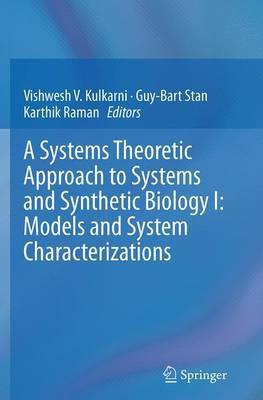A Systems Theoretic Approach to Systems and Synthetic Biology I: Models and System Characterizations(English, Paperback, unknown)
Quick Overview
Product Price Comparison
The complexity of biological systems has intrigued scientists from many disciplines and has given birth to the highly influential field of systems biology wherein a wide array of mathematical techniques, such as flux balance analysis, and technology platforms, such as next generation sequencing, is used to understand, elucidate, and predict the functions of complex biological systems. More recently, the field of synthetic biology, i.e., de novo engineering of biological systems, has emerged. Scientists from various fields are focusing on how to render this engineering process more predictable, reliable, scalable, affordable, and easy. Systems and control theory is a branch of engineering and applied sciences that rigorously deals with the complexities and uncertainties of interconnected systems with the objective of characterising fundamental systemic properties such as stability, robustness, communication capacity, and other performance metrics. Systems and control theory also strives to offer concepts and methods that facilitate the design of systems with rigorous guarantees on these properties. Over the last 100 years, it has made stellar theoretical and technological contributions in diverse fields such as aerospace, telecommunication, storage, automotive, power systems, and others. Can it have, or evolve to have, a similar impact in biology? The chapters in this book demonstrate that, indeed, systems and control theoretic concepts and techniques can have a significant impact in systems and synthetic biology. Volume I provides a panoramic view that illustrates the potential of such mathematical methods in systems and synthetic biology. Recent advances in systems and synthetic biology have clearly demonstrated the benefits of a rigorous and systematic approach rooted in the principles of systems and control theory - not only does it lead to exciting insights and discoveries but it also reduces theinordinately lengthy trial-and-error process of wet-lab experimentation, thereby facilitating significant savings in human and financial resources. In Volume I, some of the leading researchers in the field of systems and synthetic biology demonstrate how systems and control theoretic concepts and techniques can be useful, or should evolve to be useful, in order to understand how biological systems function. As the eminent computer scientist Donald Knuth put it, "biology easily has 500 years of exciting problems to work on". This edited book presents but a small fraction of those for the benefit of (1) systems and control theorists interested in molecular and cellular biology and (2) biologists interested in rigorous modelling, analysis and control of biological systems.


